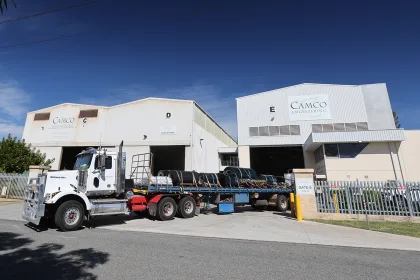The financial services market in Asia continues to grow, especially in Hong Kong where start-up fintech organisations are slowly but surely taking off. It’s an exciting time for fintech in general, from payments and digital initiatives to regulatory and IT transformation projects, it’s all happening. The region has also seen a change in demographic, including the rise of the millennials and an influx of American and Canadian born Chinese people which is challenging the status quo and bringing new opportunities. But what does it mean for the region’s banks and financial institutions?
Simply put, banks will have to be all things to all people. This is easier said than done due to legacy infrastructures and applications that do not give banks the agility, reactionary power and scalability they need. Banks must now address a myriad of multi-channel, ‘ease of use’, and speed of execution requirements alongside the delivery of traditional banking services that we have all grown to love and know. ‘Love’ in this sense being a very loose term as the trust in banks varies significantly from generation to generation. One thing remains equal though across all demographics is that it only requires a single positive or negative trust event to either win or lose a customer. The customer has many choices including new offerings from niche players that can afford to focus all their resources (time, energy and minimal budget) on delivering a tailored service, designed to capture market share. The ability to switch from one bank to the next is a lesson well learned from the telecommunications industry and is being executed flawlessly across the banking industry.
DIGITAL GROWTH
Digital growth in the sector is growing fast. Banks are solving the digital ask in different areas along the value chain, but not yet looking at end-to-end solutions. This will impact the benefits and synergies which can be achieved, as well as creating levels of complexity.
Banks are scurrying to be the first to discover the ‘golden bullet’ in the digital space; the one single app that is going to revolutionise their business as a market leader and capture market share. The reality, unfortunately, is somewhat different. The large array of needs displayed by the current demographic range will not allow for this ‘singularity event’ to happen. As an alternative, banks should look at ensuring the changes they make in the digital space solve end-to-end problems and issues. Solving problems in isolation to the rest of the business is just compounding the already complex and over-engineered application landscapes banks have. In other words, just simply placing a ‘plaster’ over the wound will not offer banks the flexibility, scalability and cost saving that they so desperately desire and strive for.
CHANGING DEMOGRAPHICS
Trust between banks and consumers is incredibly important. A single act of trust may be enough to win business with a millennial, but for older generations, trust will need to have been built up over time. It’s a big challenge and an opportunity for banks who find themselves up against niche players with particularly targeted offerings. They must start preparing now to ensure they are flexible enough to attract the next generation of customers.
Niche players cannot afford to be everything to everyone, while the expectations on large multinational banks is exactly this. The older demographic expects a full end-to-end service. For the younger generation the ease of use and enchanting front end experience is all that matters. They don’t really care how it all works in the background, just as long as it works. Both of these situations present opportunities for banks and niche players alike, but to make money and be agile one has to decide on which strategy one takes.
So how can banks and niche players win? By choosing a specific strategy and devoting time and resources to seeing it through. There is nothing more self-destructive than an institution that changes its strategy based on small market movements. Contemporary customers from the entire demographic spectrum want consistency, so both banks and niche players must choose a space and commit to becoming market leaders to succeed.
REGULATORY BURDEN
The financial services regulatory space is very much front and centre in APAC and we can expect this to continue. Capco has seen significant interest from banking clients looking for support outside of the big four as this ensures competitiveness and flexibility in resourcing.
The regulatory deluge we’re seeing in the APAC market is becoming a real drain on resources for banks, to the extent that the fun is being taken out of banking. Banks are forced into complying with an endless list of changes to processes and reporting that the loser at the end of the day is the person that should be benefitting from it all: the consumer. Banks are investing significant proportions of their budgets in regulatory measures just to keep pace with the requirements laid down on them. This in turn is taking away from the innovation budget banks have enjoyed in the past to enable better and cheaper services for the end customers.
Will the increasing cost pressures on banks mean a free bank account becoming a thing of the past? Quite possibly. The regulatory requirements surrounding such a bank account outweigh the ability of the bank to provide information cost effectively, so that the customer is not penalised for it. Does this create more consumer confidence in banks? Does the customer make the decision to move to another bank because the regulations are implemented more efficiently than a competitor bank? Clearly not, but the banks that win will be those that can absorb the cost of this change, without passing it onto the customer.
By Brent Ingham, Managing Principal at Capco





























